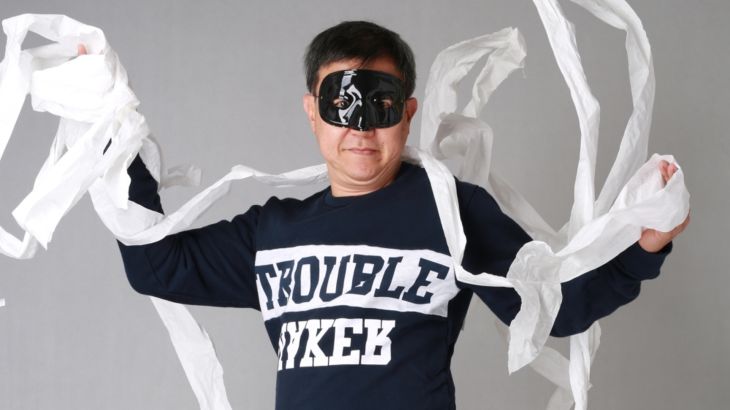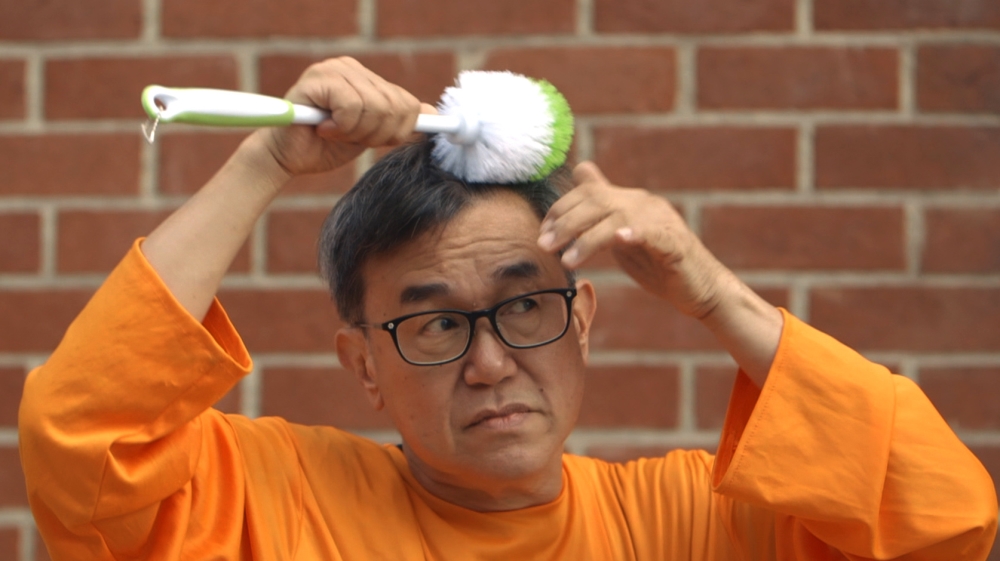
Mr Toilet: The Su-poo-hero of Global Sanitation
An eccentric entrepreneur is determined to provide better sanitation for millions of people who lack proper toilets.
To a stranger, Jack Sim is a man obsessed with toilets – but to those who know him, he is ‘Mr Toilet’, a crusader for global sanitation.
Born in Singapore‘s slums, Sim knows first hand the agonies of not having a proper toilet. Now he is dedicating his life to a crisis few feel comfortable talking about.
Keep reading
list of 4 itemsHere’s how to help earthquake-hit Morocco reduce the risk of disease
How much plastic is in our oceans?
Despair in Ettadhamen: The harsh reality of Tunisia’s economy
Not having a place “to go” is not just an inconvenience; it is a problem that impacts 2.4 billion people worldwide.
In India alone, roughly 200,000 children die each year from lack of safe sanitation, while women are regularly raped because they must defecate in public spaces.
Sim, who uses humour to fight against bathroom taboos, founded the World Toilet Organization (WTO) and spent years lobbying countries worldwide to raise awareness for proper sanitation. He even successfully lobbied the United Nations to create World Toilet Day – the first international day of celebration for the toilet.
Now he is plunged into his biggest challenge yet when asked to secure six million toilets for the “Clean India” initiative. But with few resources, little help from the government, and his global adventures putting a strain on his family and WTO’s board members, he wonders if he has finally met his match.
Follow Mr Toilet’s travels, as he dons costumes, cracks jokes, negotiates with government officials and journeys to remote communities to make sure that everyone has a place “to go”.

FILMMAKER’S VIEW
By Lily Zepeda
As a kid, I always thought I would grow up to be a mix of Diane Sawyer and Jeff Corwin – a world-renowned reporter who travels the world breaking news stories, and a childlike host who enthusiastically skips through rainforests and desert landscapes in search of the unusual.
The story of Mr Toilet strangely embodies both of these dreams.
One fall afternoon in 2012, I was sitting in LA’s rush hour traffic when I had to pee. As I quickly pulled off into the nearest store front, a DJ on the radio announced that the Bill & Melinda Gates Foundation had launched a toilet competition. Yes, a toilet competition!
I was all ears and stayed in the car a little longer to learn that Caltech, a university right in my city, had won first prize for their sustainable toilet model. This seemed random, yet funny and somehow very important – all elements of a great story. As I dug even deeper into the details (on my iPhone while finally peeing), I learned some shocking statistics: 2.4 billion people lack access to a safe, clean toilet. That means more people in the world have access to a cell phone than they do to a toilet. That’s crap.
In addition, it is women who suffer the most. They must hold their bodily urges all day and when they finally relieve themselves at night they are at risk of rape. And, girls often do not go to school past menstruation age because they have no privacy during their time of the month.
This was a big turning point for me. As a woman privileged enough to have a safe place to go, and as a teenage youth mentor at the time, I was moved to tell this story in a big, bold way.
After the prize-winning toilet engineers at Caltech realised how obsessed I had become with their story (and toilet) they introduced me to sanitation pioneer Jack Sim, better known as Mr Toilet, who on our first phone call said, “I am going to turn poop culture into pop culture.”
I was sold. Mr Toilet’s fearless humour and disregard for cultural norms was the magic potion for a character-based film about a taboo subject. Nobody was willing to talk shit like Mr Toilet, and humour was the way I felt most comfortable expressing myself.
When people laugh, barriers come down and we become receptive to information or ways of thinking that were not there before.
Mr Toilet’s childlike demeanour and wild ideas act as a magnet for drawing audiences into a platform that tackles urgent and sensitive issues.
As I look back on the film’s five-year journey – which was shot in four different countries, incorporates four languages, and weaves in both verite and animation – I realised not only did this story revive my sense of wonder for strange worldly subjects, but it also provided an opportunity to tell a heartfelt and funny story that intends to build bridges across cultures.
I hope that this intimate access into the life of The World’s #2 Superhero will reveal the #1 struggle that a voiceless community faces in getting the world to act.